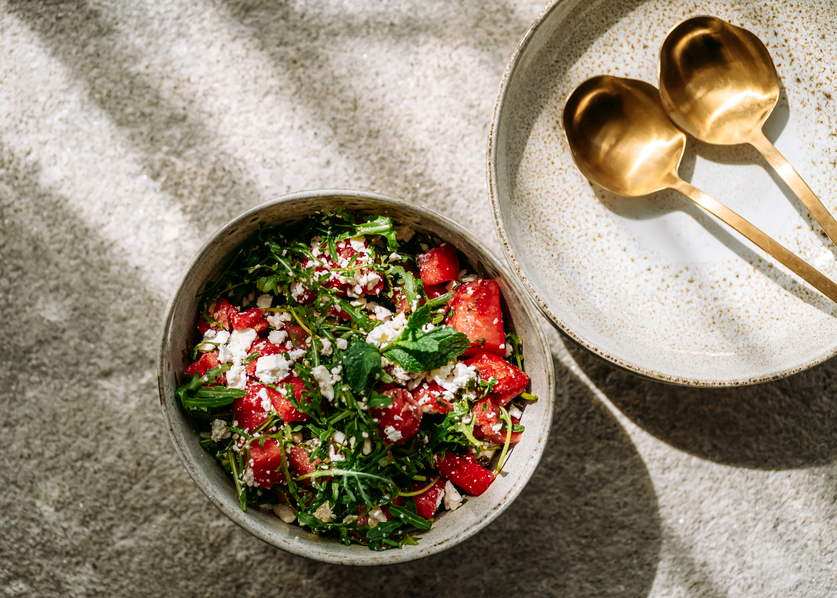Read on to see what L-citrulline is and why it promises to be so beneficial to your health. Plus: Discover creative ways to boost your intake with plenty of sweet, juicy watermelon.
What is L-citrulline?
“L-citrulline is a non-protein amino acid found in the pulp and rind of watermelon that may have promising health-related results,” he says. Kim Rose, RDN, CDCES, CNSC, a Florida-based dietitian. While some amino acids comprise protein, L-citrulline is not one of them. That said, a 2013 review in International Journal of Basic and Applied Nutritional Sciences explains that L-citrulline “stimulates protein synthesis in skeletal muscle” and “could play a fundamental role in maintaining protein homeostasis”, so it is not a total failure in this regard.
L-citrulline is also a non-essential amino acid, which means your body makes it on its own. However, it is produced at lower levels than you would get from eating watermelon or through supplementation.
The health benefits of L-citrulline
“L-citrulline can support heart health by lowering blood pressure; increase blood flow and reduce heart rate during and after a workout, respectively; and it can help slow cognitive decline,” says Rose.
L-citrulline increases vasodilation, also known as the dilation of blood vessels, which lowers blood pressure and improves blood flow. According to a 2018 nutrients article, is works by increasing the bioavailability of arginine, which “subsequently leads to elevations in nitric oxide synthesis.” (Nitric oxide is a compound that relaxes the constriction of the small muscles of the blood vessels). Over time, increased intake of L-citrulline, both through watermelon and through other vasodilator foods—may support a lower risk of hypertension and heart disease.
From there, a study published in theJournal of Food and Agricultural Chemistry demonstrated the functional benefits of L-citrulline after exercise. Although using a small sample size, the study found that athletes who drank 500 milliliters of pure watermelon juice (1.17 grams of L-citrulline) or watermelon juice spiked with an additional 4.83 grams of L-citrulline helped reduce not only participants’ heart rate recovery, but also their muscle soreness after 24 hours compared to a placebo group.
Lastly, Rose mentions a 2020 study published in Alzheimer’s and dementiain which researchers found that L-citrulline supplementation in mice can modify cognitive decline since nitric oxide “plays an important role in synaptic plasticity, learning and memory”.
Simply put, thanks to its abundant L-citrulline content, everyone’s favorite summer fruit works overtime to support a variety of impressive functions throughout your body, while delighting your taste buds and keeping you hydrated.
How to Increase L-Citrulline Intake
Again, watermelon is your best bet for loading up on this amino acid through diet, although supplementation is also an option to further increase your intake or when watermelon is no longer in season. (Note: As always, consult a trusted health professional before adding any new supplements to your regimen.)
While there is currently no precise intake recommendation for L-citrulline, Rose shares that a two-cup serving of watermelon (which can contain between 286 and 1,266 milligrams, depending on quality and breed) “may help support vascular health and maintain healthy blood flow.” She goes on to say that to produce other benefits, the exact recommended amounts are still being researched.
In any case, prioritizing watermelon in your diet this summer is a safe bet to move you in the right direction. Fortunately, Rose shares several creative ways to enjoy it that go beyond just slicing it, like:
- Preparing a Balsamic Chicken and Watermelon Salad
- serving this delicious watermelon pizza
- Mixing up a colorful summer fruit salad with chunks of watermelon, berries and apples
- Freezing watermelon ice cubes
- Blend a granita made with frozen watermelon and lime juice
- giving you a freshly ground watermelon spritzer
